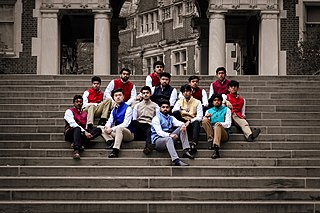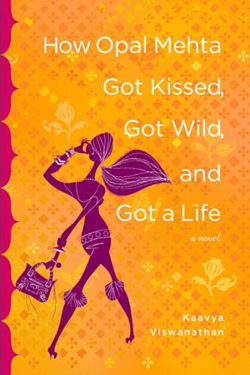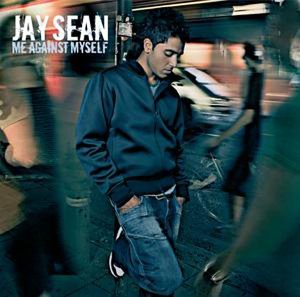
A blog is an informational website consisting of discrete, often informal diary-style text entries (posts). Posts are typically displayed in reverse chronological order so that the most recent post appears first, at the top of the web page. In the 2000s, blogs were often the work of a single individual, occasionally of a small group, and often covered a single subject or topic. In the 2010s, "multi-author blogs" (MABs) emerged, featuring the writing of multiple authors and sometimes professionally edited. MABs from newspapers, other media outlets, universities, think tanks, advocacy groups, and similar institutions account for an increasing quantity of blog traffic. The rise of Twitter and other "microblogging" systems helps integrate MABs and single-author blogs into the news media. Blog can also be used as a verb, meaning to maintain or add content to a blog.

Desi is a loose term used to describe the peoples, cultures, and products of the Indian subcontinent and their diaspora, derived from Sanskrit देश, meaning 'land' or 'country'. Desi traces its origin to the people from the South Asian republics of Bangladesh, India, and Pakistan, and may also sometimes include people from Myanmar, Bhutan, Afghanistan, Maldives, Nepal, and Sri Lanka.

Penn Masala is an American a cappella group. It is the world's first and premier South Asian a cappella group. Formed in 1996 by students at the University of Pennsylvania, Penn Masala's music has been influenced by the Eastern and Western cultures that represent the group's membership. The group was featured on the soundtrack of American Desi, and has released twelve full-length albums: Awaaz, 11 PM, Soundcheck, The Brown Album, Pehchaan, On Detours, Panoramic, Kaavish, Resonance,Yuva, Musafir, Midnight Oil, an EP titled Vol. 1 and the compilation album Out of Stock. The group has performed at the White House.

The Indian Rebellion of 1857 was a major uprising in India in 1857–58 against the rule of the British East India Company, which functioned as a sovereign power on behalf of the British Crown. The rebellion began on 10 May 1857 in the form of a mutiny of sepoys of the company's army in the garrison town of Meerut, 40 miles (64 km) northeast of Delhi. It then erupted into other mutinies and civilian rebellions chiefly in the upper Gangetic plain and central India, though incidents of revolt also occurred farther north and east. The rebellion posed a military threat to British power in that region, and was contained only with the rebels' defeat in Gwalior on 20 June 1858. On 1 November 1858, the British granted amnesty to all rebels not involved in murder, though they did not declare the hostilities to have formally ended until 8 July 1859.
Indo-Caribbean people or Indian-Caribbean people are people in the Caribbean who trace their ancestry to the Indian subcontinent. They are descendants of the Jahaji indentured laborers from British India, who were brought by the British, Dutch, and French during the colonial era from the mid-19th century to the early 20th century. A minority of them are descendants from people who immigrated as entrepreneurs, businesspeople, merchants, engineers, doctors, religious leaders, students, and other professional occupations beginning in the mid-20th century and continuing to the present.

MTV Desi is a digital platform from MTV that targeted Desis in the United States, as the name implies. The network features various styles of music such as electronic tabla music and English-Gujarati hip-hop, interspersed with Bollywood videos. It also broadcasts brief documentary clips profiling Desis/famous Indians in music, comic skits about South-Asian American generational conflicts, interviews with bi-cultural artists and Desi house parties, live performances and animated series. It launched as a cable network on July 12, 2005 and was shut down in 2007. It was relaunched as a digital platform in 2012.

How Opal Mehta Got Kissed, Got Wild, and Got a Life is a controversial young adult novel by Kaavya Viswanathan, written just after she graduated from high school. Its 2006 debut was highly publicized while she was enrolled at Harvard University, but the book was withdrawn after it was discovered that portions had been plagiarized from several sources, including the works of Megan McCafferty, Salman Rushdie, and Meg Cabot.
Desicritics is an online magazine that explores the world from the perspective of Desis, that is, people from South Asia. It provides news and opinion with a global South Asian perspective. The site is over four years old, and is recognized as "a leading source of information in the Indian Blogosphere."

Me Against Myself is the debut studio album by Jay Sean, released 8 November 2004 in the United Kingdom, on 2Point9 Records, Relentless Records, and Virgin Records.
Indian Filipinos are Filipinos of Indian descent who have historical connections with and have established themselves in what is now the Philippines. The term refers to Filipino citizens of either pure or mixed Indian descent currently residing in the country, the latter a result of intermarriages between the Indians and local populations.

South Asian Americans are Americans of South Asian ancestry. The term refers to those who can trace back their heritage to South Asia, which includes the countries of India, Pakistan, Bangladesh, Nepal, Sri Lanka, Bhutan, and the Maldives. The South Asian American diaspora also includes generations of South Asians from other areas in the world who then moved to the United States, areas such as Guyana, Trinidad and Tobago, Canada, the United Kingdom, the Netherlands, France, Australia, New Zealand, Fiji, South Africa, Uganda, Kenya, Tanzania, Mauritius, Singapore, Malaysia, Suriname, other parts of the Caribbean, etc. In the United States census, they are a subcategory of Asian Americans, although individual racial classification is based on self-identification and the categorization is "not an attempt to define race biologically, anthropologically, or genetically".

The 1915 Singapore Mutiny, was a mutiny of elements of the British Indian Army's 5th Light Infantry in the colony of Singapore. Up to half of the regiment, which consisted of Indian Muslims predominantly from Muslim Rajput background, mutinied on 15 February 1915 due to rumours that they would be sent to fight against the largely Muslim Ottoman Empire as part of the Middle Eastern theatre of World War I. The mutineers killed 36 soldiers and civilians before the mutiny was suppressed by Allied forces. After the mutiny, more than 205 mutineers were tried by court-martial, and 47 were sentenced to execution by firing squad.
While the term "blog" was not coined until the late 1990s, the history of blogging starts with several digital precursors to it. Before "blogging" became popular, digital communities took many forms, including Usenet, commercial online services such as GEnie, BiX and the early CompuServe, e-mail lists and Bulletin Board Systems (BBS). In the 1990s, Internet forum software, such as WebEx, created running conversations with "threads". Threads are topical connections between messages on a metaphorical "corkboard". Some have likened blogging to the Mass-Observation project of the mid-20th century.
The history of Indian cuisine consists of cuisine of the Indian subcontinent, which is rich and diverse. The diverse climate in the region, ranging from deep tropical to alpine, has also helped considerably broaden the set of ingredients readily available to the many schools of cookery in India. In many cases, food has become a marker of religious and social identity, with varying taboos and preferences which has also driven these groups to innovate extensively with the food sources that are deemed acceptable.

Padma Viswanathan is a Canadian playwright and fiction writer.
Desi hip hop is a term for music and culture which combines the influences of hip hop and the Indian subcontinent; the term desi referring to the South Asian diaspora. The term has also come to be used as an alternative for rap music and even pop music which involves rappers of South Asian origins.

The South Asian diaspora, also known as the Desi diaspora, is the group of people whose ancestral origins lie in South Asia, but who live outside the region. There are over 44 million people in this diaspora.
Mitraniketan K. Viswanathan was an Indian social reformer, philanthropist, and environmentalist in Kerala, India. He founded Mitraniketan, a non governmental organization in Vellanadu, Thiruvananthapuram, in 1956.

Desi daru, also known as country liquor or Indian-made Indian liquor (IMIL), is a category of liquor made in the countryside of the Indian subcontinent. It is traditionally prepared by a procedure that has been passed down for centuries. Due to cheap prices, country liquor is the most popular alcoholic beverage among the impoverished people. It is fermented and distilled from molasses, a by-product of sugarcane. Desi liquor is a broad term and it can include both legally and illegally made local alcohol. The term desi daru usually refers to legal alcohol while other types of country liquor may be categorised as moonshine alcohol.
The DhoomBros are a Pakistani-American dance group, as well as YouTubers, actors, singers and entertainers. Based in New York and Houston, the group consists of Shehryaar Asif, Hussain Asif, Atif Khan and Waqas Riaz. Since creating their first channel (DhoomBros) in 2008, their videos have gathered over 55 million views, excluding those from their more recent channel started in 2012.











